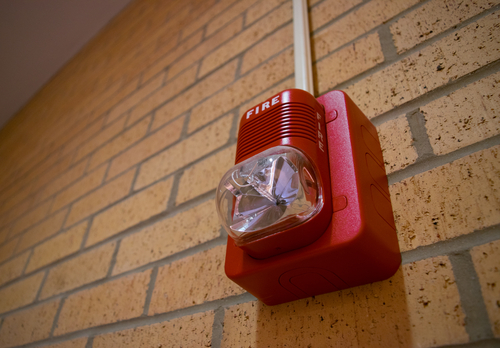As Labor Day nears, college students across the country have recently returned to campus or are gearing up to return as in-person learning resumes at many higher education institutions. Through their annual “Campus Fire Safety for Students” campaign in September, the National Fire Protection Association (NFPA) and Center for Campus Fire Safety (CCFS) are working together to help ensure living spaces are as safe as possible for students.

Every September, Campus Fire Safety Month raises awareness about the threat of fires in both on- and off-campus housing, putting relevant information in the hands of students, their parents, and campus housing staff and administrators who are encouraged to take proactive measures to protect themselves, their family, and peers from fires and make living spaces safer for students upon their return to school.
According to data from CCFS, from January 2000 to April 2022, 94 fatal fires have been documented that occurred on a college campus, in Greek housing, or in off-campus housing within three miles of the campus and claimed 134 lives. Of the 94 fires documented, 38 were accidental and involved cooking, candles, smoking, or electrical equipment, and took the lives of 51 students. NFPA research shows that September and October are the peak months for campus fires, particularly during the evening between 5:00 p.m. and 9:00 p.m.
“As students return to college life this fall, we encourage them to review fire safety tips to learn how to prevent fires. The more prepared we are, the more we can do to reduce fire risk,” said Lorraine Carli, NFPA vice president of Outreach and Advocacy and CCFS Advisory Council member. “Campus Fire Safety Month provides a great opportunity to share materials and action steps and foster a culture of awareness and preparedness about fire safety on our college campuses.”
These tips from NFPA and CCFS can help students reduce the risk of fires and save lives:
- Know and practice the building’s evacuation plan, as well as alternate routes out of the building.
- Cook in intended areas only, and never leave cooking equipment unattended when in use, even briefly.
- Test smoke alarms monthly in an apartment or a house. Ensure smoke alarms are installed in all sleeping areas, outside of all sleeping areas, and on every level of the apartment or house. Never remove or disable smoke alarms.
- Keep combustible items away from heat sources and never overload electrical outlets, extension cords, or power strips. Many fires are caused by portable light and heat sources, like space heaters and halogen lamps.
- Keep common areas and hallways free of possessions and debris. Never block exit routes.
Many of the resources, including videos, checklists, infographics, and tips sheets, are designed to be shared through social media, school newspapers, college websites, and posted in dormitory common areas. For more information about the Campus Fire Safety for Students campaign and to find free resources, visit nfpa.org/campus and the CCFS website and its Share! For Students webpage.
